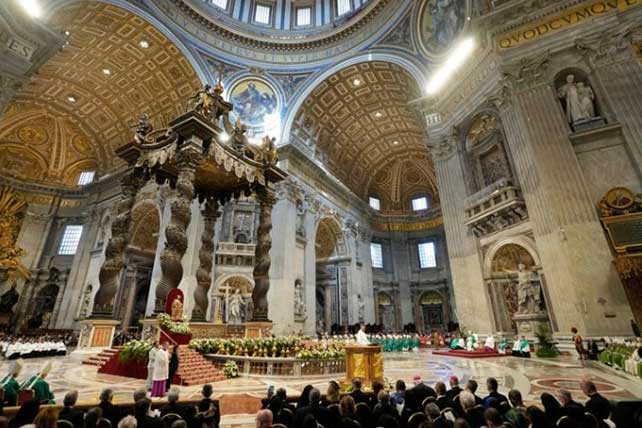Francis’ answer to the separation between the hierarchy and the faithful is synodality — an openness to dialogue and encounter with those of differing experiences and perspectives — which he is attempting to inject into every aspect of the church, including theology.
Theology is called to be “a transcendent knowledge, which is at the same time attentive to the voice of the people, hence a ‘popular theology,’” Francis wrote in his decree. To do this, theologians must embrace dialogue with different traditions and religions, “openly engaging with everyone, believers and non-believers,” he added.
This is nothing new, according to Paris, who said this understanding of theology was already enshrined in “Lumen Gentium,” Latin for “Light of Nations,” the final document emerging from the Second Vatican Council in 1964. “Following the council, this is the direction that theology has undertaken, or at least attempted to,” he said.
RELATED: Vatican Summit Tackles Women’s Ordination With a Nod From Pope Francis
Of course, he added, engaging with literature is easier for theologians than engaging with highly specialized sciences. “Understanding quantum mechanics is not exactly a walk in the park,” Paris said.
There is some pushback against Francis’ vision for a “theologian who smells of the flock,” Paris admitted. “Lately in the church there is a polarization that seems to suggest that engaging in contextual dialogue is something new,” he said, pointing to “theological, but also ideological and cultural tensions.”
In the interview, Pope Francis criticized reactionaries “who don’t accept that the church moves forward.” Instead, the church must grow “like the fruit of the tree, but always attached to its roots,” the pope said.
Francis has often quoted fifth-century St. Vincent of Lérins, who laid out a vision for the harmonious development of Catholic teaching that is “consolidated through the years, developed over time, refined by age.” On the death penalty, on slavery and even on atomic weapons, doctrine has changed, the pope said, suggesting there is no reason why it shouldn’t change some more.
This article originally appeared here.

